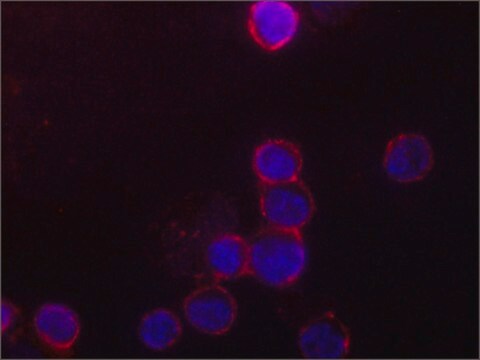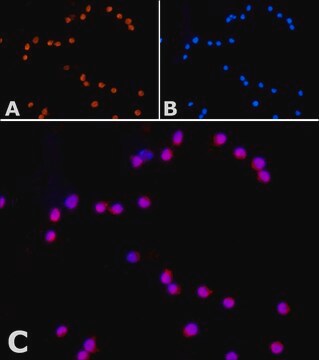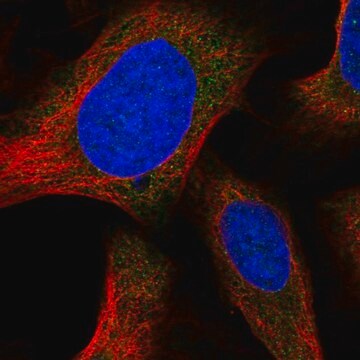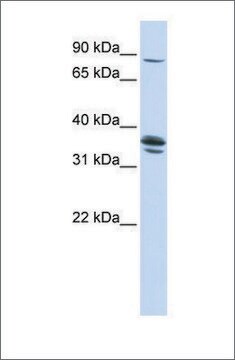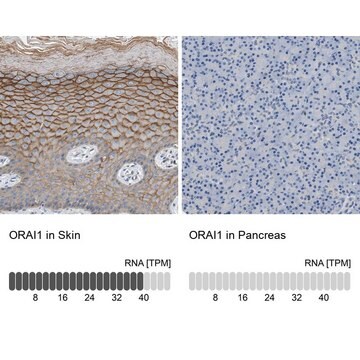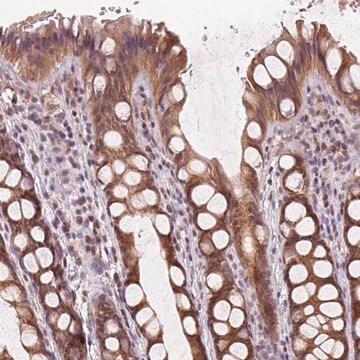SAB3500127
Monoclonal Anti-ORAI1 antibody produced in mouse
clone 6D11A11, purified immunoglobulin, buffered aqueous solution
Synonym(s):
Anti-Calcium release-activated calcium channel protein 1, Anti-TMEM142A, Anti-Transmembrane protein 142A
About This Item
IF
IHC
WB
immunohistochemistry: suitable
indirect ELISA: suitable
western blot: suitable
Recommended Products
biological source
mouse
Quality Level
conjugate
unconjugated
antibody form
purified immunoglobulin
antibody product type
primary antibodies
clone
6D11A11, monoclonal
form
buffered aqueous solution
mol wt
predicted mol wt 33 kDa
species reactivity
rat, mouse, human
technique(s)
immunofluorescence: suitable
immunohistochemistry: suitable
indirect ELISA: suitable
western blot: suitable
UniProt accession no.
shipped in
dry ice
storage temp.
−20°C
target post-translational modification
unmodified
Gene Information
human ... ORAI1(84876)
Immunogen
Features and Benefits
Target description
Physical form
Disclaimer
Not finding the right product?
Try our Product Selector Tool.
Storage Class Code
10 - Combustible liquids
WGK
WGK 2
Flash Point(F)
Not applicable
Flash Point(C)
Not applicable
Choose from one of the most recent versions:
Certificates of Analysis (COA)
Don't see the Right Version?
If you require a particular version, you can look up a specific certificate by the Lot or Batch number.
Already Own This Product?
Find documentation for the products that you have recently purchased in the Document Library.
Our team of scientists has experience in all areas of research including Life Science, Material Science, Chemical Synthesis, Chromatography, Analytical and many others.
Contact Technical Service